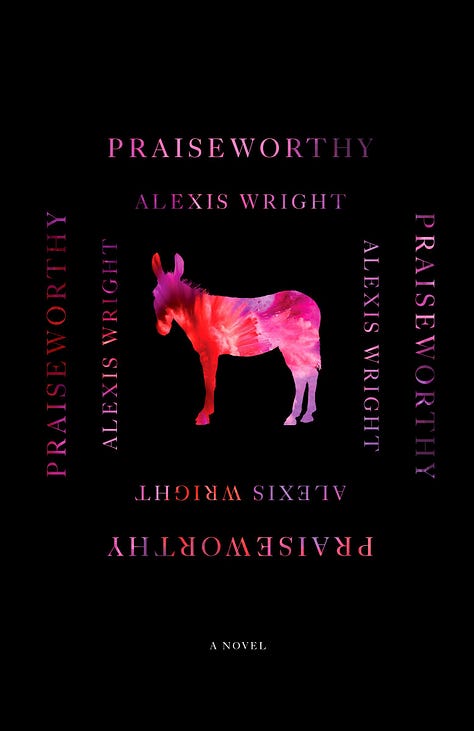

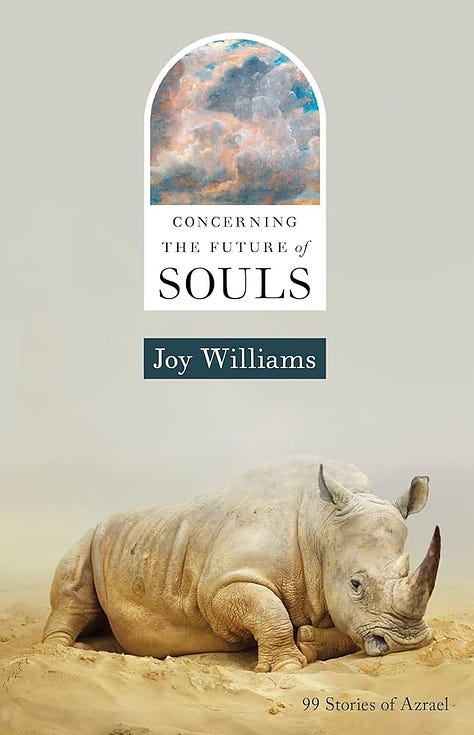
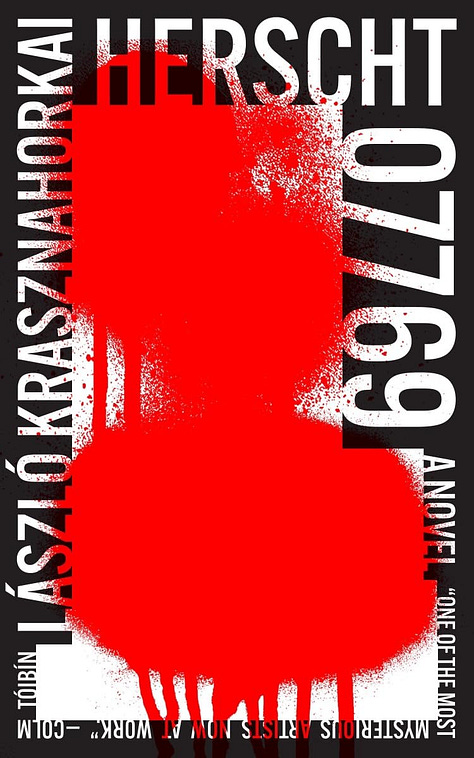
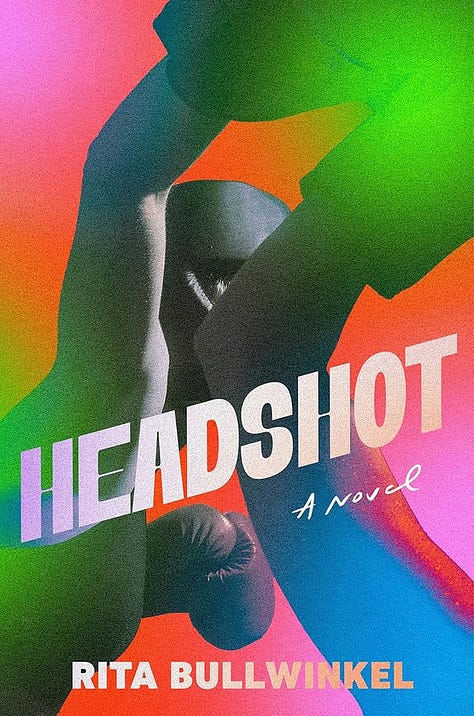
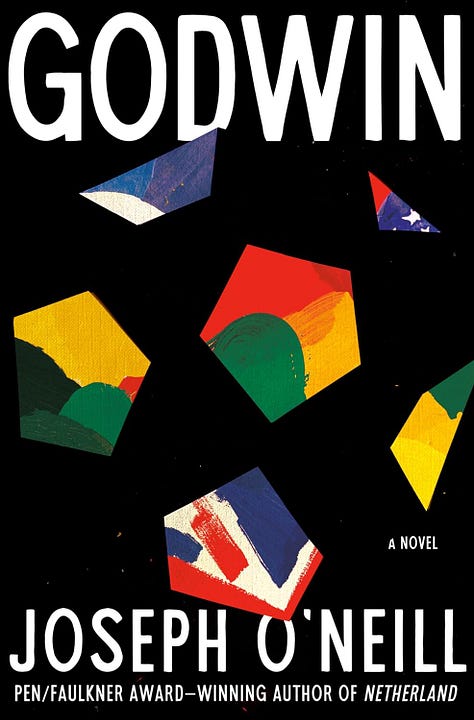
Well, here we are again, gathered together at literature’s biggest night - the Evanees, where we decide the best books of the year. The stars are all here! Philip Roth is waiting by his phone for a call he’ll never get – even in the afterlife! Thomas Pynchon isn’t here… or is he? And Elena Ferrante even said she’d show up, but so far only Domenico Starnone has come in… I kid, I kid. Publicists at small presses are crossing their fingers, hoping they’ll get a google alert for one of their books out of this, to which they can say ‘That’s nice’ before moving on to the ten more things they have to do that day!! (Who am I kidding, it’s December 19, no one’s doing anything unless they work in retail. If you are - chin up!! It’s almost over!!) And all my beautiful subscribers are here – wow, you look marvelous! Let’s get on with the show, these things always run long.
The normal caveats apply – all lists are silly, there’s no way to properly ‘rank’ works of art, and every list is about exclusion as much as inclusion. I hope only in these lists to highlight some books that aren’t on every major publication’s year-end lists, and also give some further shine to some of my favorite reads of the year now that I’ve gained a little more distance from them. It’s more of a ‘favorites’ than ‘historical best’ thing, which is why you won’t see Proust and Mann on my top 10, even though I read a couple of their world-historical works this year (sorry, fellas - try again next year; a near century of posterity will have to do till then). I’ll also include some 2024 books I didn’t get around to that I’d still like to read, as well as some 2025 releases I’m looking forward to.
The Best Books of 2024
I actually had a lot to choose from this year. (Last year I couldn’t get to ten books I really liked; this year I have to trim it down to get to ten, and the cuts feel tough. Even the worst 2024 book I read – cough, Martyr!, cough – had some redeeming qualities.) It helped that some of my all time favorites – Joy Williams, László Krasznahorkai, and Cesar Aira – had new books come out, but overall it was a bumper crop for fiction. Even the bestsellers weren’t bad – James and All Fours were public darlings that you could read without thinking the entire country needed a cork for their fork. They don’t make my list, though – close, but no cigar. The closest cuts - tied for 11th, if you will, the most honorable of mentions - are Adam Ehrlich Sachs’ Gretel and the Great War and Margaret Jull Costa’s new translation of Machado de Assis’s Quincas Borba.
Praiseworthy, Alexis Wright (New Directions)
A monumental novel, one that entertained, challenged, confounded, and wrecked me in almost equal measure, sometimes all at once. The sheer breadth of Praiseworthy astounds; it tells both a family story and a national story in a language that always enthralls. Feels like one of those books that will only grow in esteem as the years pass, a prophetic vision of the world to come, a rare expansion of the possibility of our language, truly sublime.
Ghost Pains, Jessie Jezewska Stevens (& Other Stories)
The word I keep coming back to when thinking about this short story collection is sharp; Jezewska Stevens’ quality of observation is unmatched among her contemporaries, and she marries that alacrity with perfectly composed sentences. Across varied locales, Jezewska Stevens keeps a wary eye on the spaces, digital or otherwise, that we’ve created for ourselves and possibly locked ourselves into. Might as well have a party or two at the end of the world; Jezewska Stevens is the ideal host.
Concerning the Future of Souls, Joy Williams (Tin House)
Nobody does it bet-ter… like Kafka, Williams knows that a story need go no longer than it has to; once you get to the punchline, it’s time to get out. The 99 stories of this collection touch on, variously, Earth’s destruction, humanity’s soul (or lack thereof), pyschopompery, acts that the Devil considers “predictably human,” and any number of messages – from beyond or from just next door – missed or misconstrued.
Herscht 07769, László Krasznahorkai (New Directions, translated by Ottilie Mulzet)
Quantum physics, neo-nazis, Bach, terrorism, wolves, Angela Merkel, and a simpleminded giant named Florian, all smashed together in a one sentence rampage across the various fractures of the contemporary moment. A cacophony of terrified and terrifying voices grasping for some certainty, hovering over a catastrophic abyss, rushing towards dissolution. But like Bolaño, another master of the abyss, once wrote: “So everything lets us down, including curiosity and honesty and what we love best. Yes, said the voice, but cheer up, it's fun in the end.” Krasznahorkai, in the end, always delivers.
Headshot, Rita Bullwinkel (Viking Books)
The little breakout that never was – great reviews, meh sales, a bit of an afterthought by year’s end. Not here! Bullwinkel’s boxing tournament novel gives us a whole new version of the lives of girls and women, telescoping beyond its ratty gym setting into its characters deepest lives and also into the celestial, always surprising in its phrasing and narrative swerves. A debut that portends great things to come, of course, but also just dang good on its own, even if Bullwinkel never put out another book. TKO.
Godwin, Joseph O’Neill (Pantheon Books)
Some critics winced at the final punchline of this novel, but it’s only gotten more grimly funny in the last month or so, an indicator of O’Neill’s essential perspicacity about the world and the way it really operates – by hook and by a whole lot of crook. Whether focusing on the wilds of international soccer or internecine office politics, Godwin is always resolutely human, a touch funny, a touch revolting, a touch tragic.
The Obscene Bird of Night, José Donoso (New Directions, translated by Hardie St. Martin and Leonard Mades, revised by Megan McDowell)
If this were just a list of most memorable reads, this would be at the top; there are certain images in this macabre nightmare that I’ll never get out of my head, and even just the mention of the book’s elaborate grotesqueries (imbunche!) are enough to elicit my friends’ and family’s pleas to please, please, stop talking about that. But lurking beneath these surface gross-outs is a great gothic novel of difference and isolation, of the thin line that separates the fortunate from the left behind. The nightmare of magical realism.
Festival & Game of the Worlds, César Aira (New Directions, translated by Katherine Silver)
We value the almighty dollar here at Evan Reads, and you can’t beat two good books for the price of one. Festival is a madcap art farce, Game of the Worlds an imagining of the persistence of literature in a future designed to eliminate it. As always, Aira’s improvisational magic shines, with both books taking so many delightful left turns that you forget where you were even headed in the first place.
American Abductions, Mauro Javier Cárdenas (Dalkey Archive)
Imagine a Big Issues Book but… good? Cárdenas’s endlessly inventive novel explores the pain and cruelty of America’s burgeoning deportation machine in a language as complex, multivocal and human as the subject deserves. The novel achieves brilliance without taking any shortcuts; as interesting as it is affecting, and that’s a rare combo.
Rejection, Tony Tulathimutte (William Morrow)
Hard to even keep calling this ‘satire’ when we have a radfem incel school shooter with a locked google drive manifesto in the news; Tulathimutte has his finger unnervingly on the pulse of the current moment. But beyond any special status as a seer of the contemporary moment, Tulathimutte is simply an excellent writer, a master of character, voice, and plot escalation. One of the year’s gonzo delights, an “Eleanor Rigby” for the internet age.
The Best Books I Read in 2024
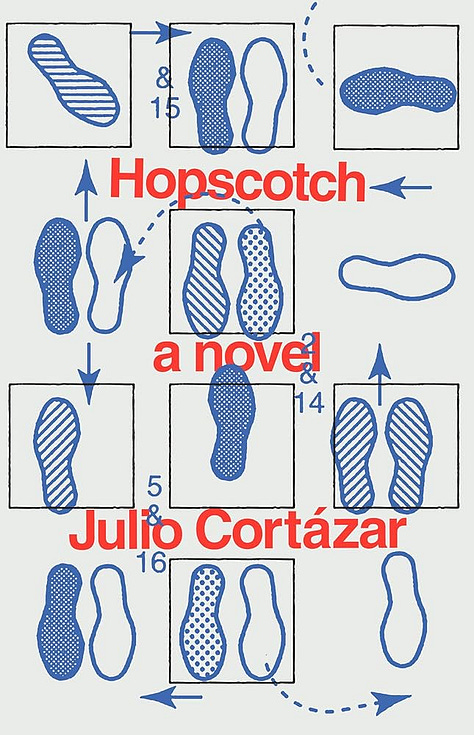
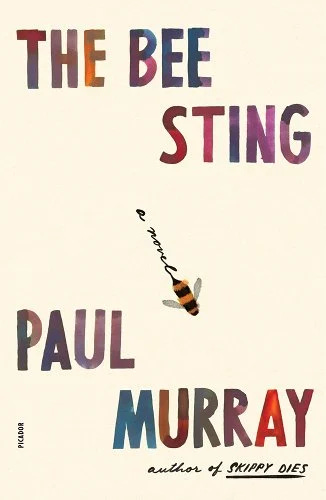
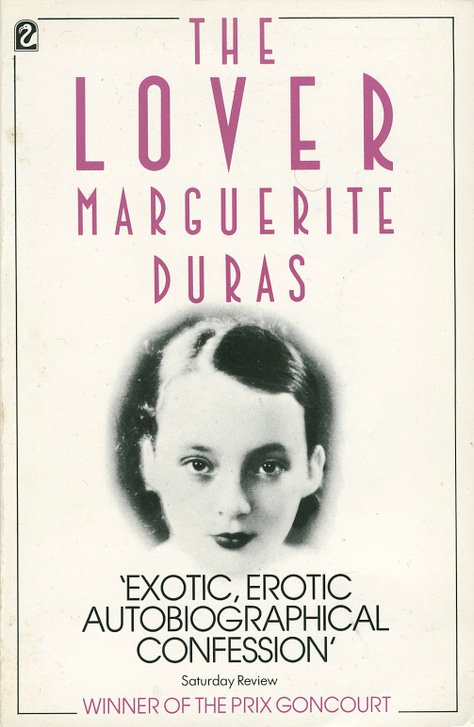
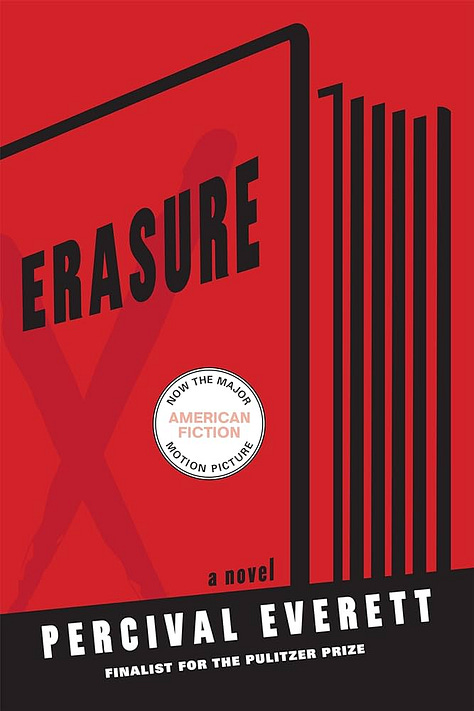
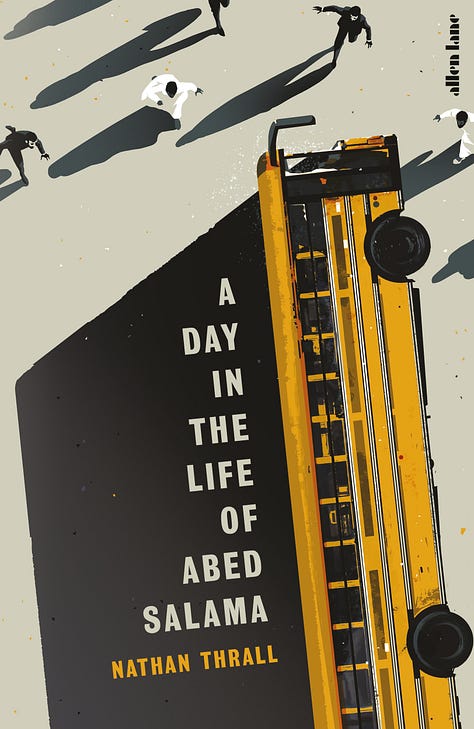
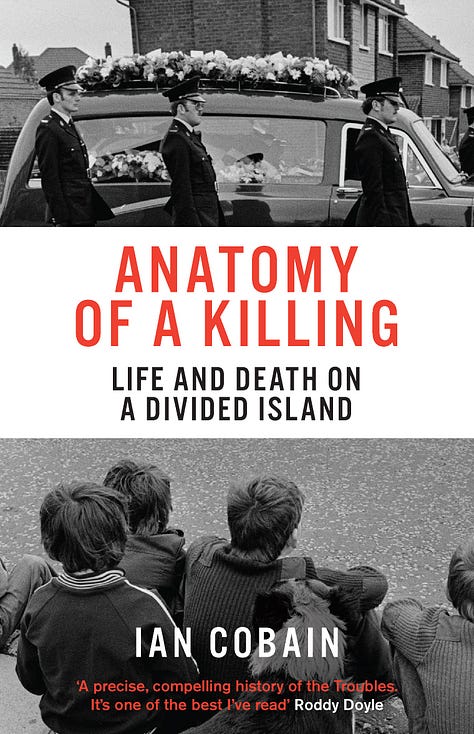
Hopscotch, Julio Cortázar (translated by Gregory Rabassa)
A bit of recency bias since I just finished it, and I’m currently working through a second reading of it (following the alternate chapter order), but, well, it’s a book I loved so much I decided to immediately re-read it. Cortázar’s ode to disorder, chance, and varieties of exile continually enthralled and surprised me, its formal tricks almost as impressive as its there-and-never-really-back-again tale. Post to come in the coming weeks - that’s what we call a teaser, folks.
The Bee Sting, Paul Murray
Alongside Eleanor Catton’s excellent Birnam Wood, a roaring return of capital P Plot to the contemporary novel. Murray’s book has all the makings of a future classic (I have yet to encounter someone who didn’t at least like it), an epic across generations full of humor and empathy. Everyone who finishes it wants to talk about it, both because of the masterful ambiguity of the ending but also the sheer pleasure of having completed such a masterfully told story.
The Lover, Marguerite Duras (translated by Barbara Bray)
A beguiling little jewel of a book, thorny but also suffused with a kind of otherworldliness. Every sentence is a marvel, a light refracted through many mirrors, crystal clear even when diverted. A book about becomings in many forms: becoming a woman, an adult, and ultimately a writer who can write The Lover.
Erasure, Percival Everett
Everett got his laurels this year with a National Book Award (and many, many year-end list appearances) for James, and the movie based off of his novel Erasure somehow won an Oscar for adaptation despite being inimical to its source material. None of that changes just how good Erasure is, a masterful novel of performance, artistic frustration, and the deep costs of selling out. Even two decades after its release, it still prods at questions that haven’t yet been answered, or have been answered in the worst way possible.
A Day in the Life of Abed Salama, Nathan Thrall
It has been a year of tragedy across Palestine; Thrall’s book digs deep into the quotidian abuses of power that led to one particular tragedy in the West Bank. Thrall’s attention is split equally between the human stories of everyone involved as well as the structural and historical decisions that made the situation a near inevitability; these two threads build and feed off one another into a narrative that is both rigorous and heartbreaking.
Anatomy of a Killing, Ian Cobain
Now that Say Nothing has been adapted into a buzzy mini-series, the IRA is probably in its biggest moment in America since… Patriot Games? Cobain’s book differentiates itself from the rest of the crop by its microfocus on a very particular time, eschewing broad strokes of the movement’s history for a near block-by-block reconstruction of one IRA unit’s movements and actions in a narrow stretch of months; as close as one can get to a (nonacademic) military history of the IRA. Wears its research proudly, reads engagingly, and Cobain does the best thing a nonfiction writer can do: get himself out of the picture, and get his finger off the scale.
The Blue Flower, Penelope Fitzgerald
Maybe the most pleasant surprise of my reading year, Fitzgerald’s book is one of the most under-appreciated books of the past thirty years, and probably of the 20th century entire. A piece of historical fiction that treats the past as a true enigma, a romance that treats love like the unknowable metaphysical force that it is, a delight in all facets.
Kick the Latch, Kathryn Scanlan
Another one I recently read and have yet to write about - look how much you have to look forward to! Scanlan’s book is a riff on Charles Reznikoff, a ‘fictional’ arrangement of testimony about a horse trainer’s itinerant life that coheres into a strange kind of collage of oral history. A novel of life’s particularities, its surprises, the way it never quite comes together the way you thought it might, the battle of incident against narrativity. A thrilling project.
Three Novels, Samuel Beckett
Another bang for your buck deal, three incredible novels in one. Between Molloy, Malone Dies, and The Unnameable, you can trace out the death of the novel. Sure, you can keep writing ‘em, and some of them are even good, but Beckett pretty much drove the nail into the coffin of narrative expression with these dissolutions of the corporeal into a solitary voice of pure anguish. Call it a viking funeral, and enjoy the show.
Revolutionary Road, Richard Yates
Technically a re-read for me, but the last time I read it I was a teenager; now that I’m a little older, and have had to live a little bit of adult life, this novel is all the more startling in its vision of thwarted American lives. On a craft level, line to line, one of the more astonishing American novels ever. Still as clear-eyed and pessimistic today as it was mid-century, and only vindicated over time.
Some 2024 Releases That Are Probably Fine But I Never Got Around To, or the Hype Cycle Was Too Loud
You Dreamed of Empires, Alvaro Enrigue (trans. Natasha Wimmer)
There's Always This Year: On Basketball and Ascension, Hanif Abdurraqib
I Heard Her Call My Name, Lucy Sante
Alphabetical Diaries, Sheila Heti
Creation Lake, Rachel Kushner
Long Island, Colm Tóibín
My Friends, Hisham Matar
On the Calculation of Volume, Solvej Balle
The Burning Plain, Juan Rulfo
Some 2025 Releases I’m Keeping an Eye On
Does Donna Tartt put out her first book in over a decade? Does Thomas Pynchon have one left in him? Don DeLillo’s been awful quiet since The Silence… Out of the realm of imagined new books, here are some that have actually been announced that look intriguing:
Stone Yard Devotional, Charlotte Wood
Killing Stella, Marlen Haushofer
The Deserters, Mathias Enard
Brother Brontë, Fernando A. Flores
After the Flood: Inside Bob Dylan’s Memory Palace, Robert Polito
Bonus Section: My Favorite Albums of 2024
MJ Lenderman, Manning Fireworks - more musicians who kneel at the altar of David Berman’s songwriting and Neil Young’s turned to 11 guitar playing, please.
Cindy Lee, Diamond Jubilee - a transmission from some other ghost pop universe.
Los Campesinos!, All Hell - pretty strange to have been following a band since I was 14 and to still be just as into them nearly two decades later. A triumph of sticking to your guns.
Vampire Weekend, Only God Was Above Us - another band that has just stuck with it for a while now, surviving multiple hype cycles to become just an altogether solid band.
Waxahatchee, Tigers Blood - However I feel about her turn towards country - sometimes I miss the scratchy guitars of the early stuff - Katie Crutchfield still has some of the best songwritings chops around, and her phrasing and cadence have never been better.
Being Dead, Eels - dream pop with a bit of menace thrown in for good measure.
The Cure, Songs of a Lost World - a 2024 Cure album that just sounds like… the Cure. No cheap nostalgia here, just an all time group with a bit more to say.
The Hard Quartet, s/t - perhaps the ideal super group, guys being dudes, rockin’ out.
Father John Misty, Mahashmashana - past all his persona(e) shtick, FJM still just puts out good tunes, ornately arranged chock full of arch one liners.
Godspeed You! Black Emperor, NO TITLE AS OF 13 FEBRUARY 2024 28,340 DEAD - good ol’ reliable GY!BE.
Best times at the movies were Furiosa, Trap, The Substance, and Rebel Ridge; I haven’t seen many of the serious movies that my smart friends say are good yet, though I’ve got tickets to The Brutalist and would like to see Anora, Between the Temples, and Nickel Boys. None of these beat (or will beat) seeing John Carpenter’s The Thing and John Ford’s The Searchers in theaters this year.
Thanks for sticking around! All the books mentioned can be bought at your local bookstore, borrowed from your local library, or bought online at Bookshop.org, where all purchases support local bookstores across the country.
If you liked this post, please share it with a friend!











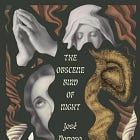





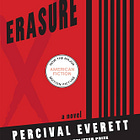





I'm a sucker for year-end best of lists and the Evanees does not disappoint (glad to see Revolutionary Road made the cut!). Thanks for including some non-book favorites as well, I've been obsessed with that Cindy Lee album since it came out and share your enthusiasm that Furiosa and The Substance were two of the best theater experiences of the year. The Brutalist has been at the top of my list for months but living in Denver means it wont come out here until sometime in January sadly. Anyway, thanks for all the great writing and recommendations this year. Happy holidays!